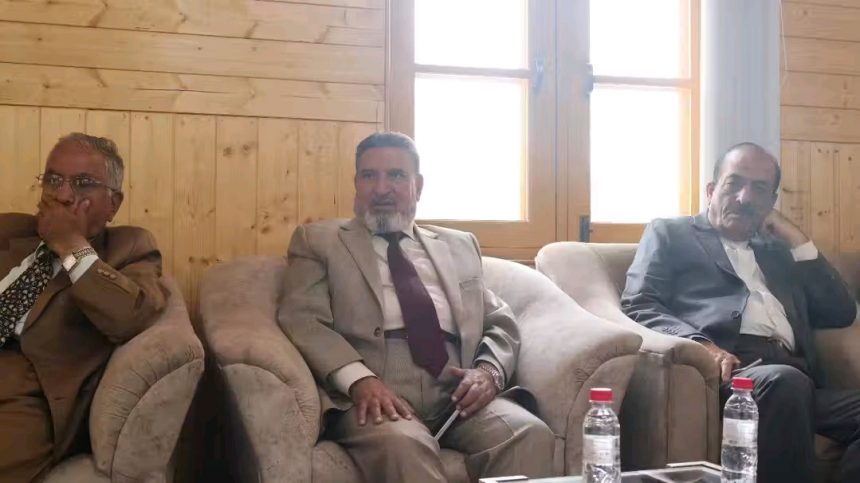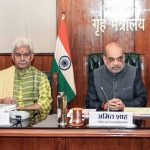The Apni Party on Monday held an extraordinary meeting to discuss several important issues, most notably the recently passed controversial Waqf Act, which is perceived to undermine the rights of Muslim minorities across the country.
According to the statement issued to media, the meeting was chaired by the party president, Syed Mohammad Altaf Bukhari. After a thorough discussion, the participants unanimously passed a resolution urging the Government of India and the public to play their role in repealing the controversial legislation.
The resolution reads: “Apni Party stands united in expressing deep concern over the recently passed Waqf Amendment Bill and urges the Government of India to reconsider it and engage in meaningful consultation with community leaders, scholars, legal experts, and representatives of Waqf Boards across the country. Any reform concerning Waqf institutions must respect their spiritual sanctity, historical purpose, and the fundamental principles of religious freedom.”
“In this regard, Apni Party calls for peaceful resistance through democratic and lawful means, and urges the government, as well as fellow citizens, to protect the ethos of inclusivity and treat this moment as an opportunity to strengthen trust among all communities. The Apni Party has decided to move to Supreme Court to ensure that the Waqf Act amendments are reversed and justice is served,” the resolution further said.
According to a party press release, the meeting was attended by all prominent party leaders, who expressed their views and shared grassroots-level feedback on the controversial Waqf Act.
Speaking on the occasion, Syed Mohammad Altaf Bukhari said, “We are all deeply concerned about the recently passed Waqf Act, as we believe this legislation threatens and undermines the rights of millions of Muslims across our great nation. For centuries, Waqf institutions have been pillars of compassion, education, and service—funded by the sacrifices of our ancestors to uplift the marginalized and preserve Islamic culture. The Waqf Act risks stripping away our community’s autonomy, replacing spiritual stewardship with bureaucratic control.”
Urging the citizens of the county to support the reversing of the Waqf Act, Syed Mohammad Altaf Bukhari said, “This is not merely a Muslim issue—it is a matter of constitutional rights and religious freedom that should concern every Indian who values justice.”
He went on to say, “I pledge my full support to all Indians—Muslims and non-Muslims alike—in this legal and moral battle. Whether in courtrooms, on the streets, or in the halls of Parliament, we Kashmiris will stand firm with you. Our struggle is not against the nation but against injustice. We believe in the power of dialogue, the Constitution, and the collective conscience of India to uphold what is right.”
Besides Syed Mohammad Altaf Bukhari, the prominent party leaders who were present in the meeting included Ghulam Hassan Mir, Mohammad Dilawar Mir, Rafi Ahmad Mir, Mohammad Ashraf Mir, Javaid Mustafa Mir, Abdul Majeed Padder, Yawar Dilawar Mir, Hilal Ahmad Shah, Farooq Andrabi, Muntazir Mohiuddin, Dilshad Shaheen, Aftab Malik, Imtiyaz Parray, Raja Manzoor, Mohammad Shafi Mir, Shafat Kazmi, Advocate Gowhar, Shabir Ahmad Shah, Dr. Samiullah, and others.









